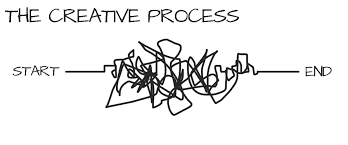
If you’re anything like me, you’ve spent a lot of time stressing over your writing process and worrying that you are doing it all wrong.
A lot of famous authors spout advice about writing, but no writer–bestseller, famous or otherwise–has the one true solution that works for everyone, because no two writer’s brains work the same way. For every successful author who says you have to do it one way, I guarantee you can find an equally successful author who does the exact opposite.
Let’s bust some myths!
1. You have to be a PLOTTER to be a serious writer
Myth: People who discovery write (PANTZERS) can’t write cohesive, quality books, and if you’re serious you have to get into the habit of outlining before you write.
Busted: Outlining is one tool in an arsenal of tools. Discovery writing is another. Forcing yourself to outline when that’s not the way you naturally work will stifle your creativity. I know I can’t think of all the best ideas out of the box, I need to explore the world before I’m even equipped to think of them!
Ideally I think you need to find the balance between the two which works for you. That balance might mean no outline at all, a brief single page synopsis of your idea, or a ten page bullet point breakdown. Whichever way you choose, you CAN write a good book.
It’s also important to remember you can outline at any stage, it doesn’t have to come first. I use a very loose outline, if any to begin with, but develop a detailed outline later as a tool for revisions.
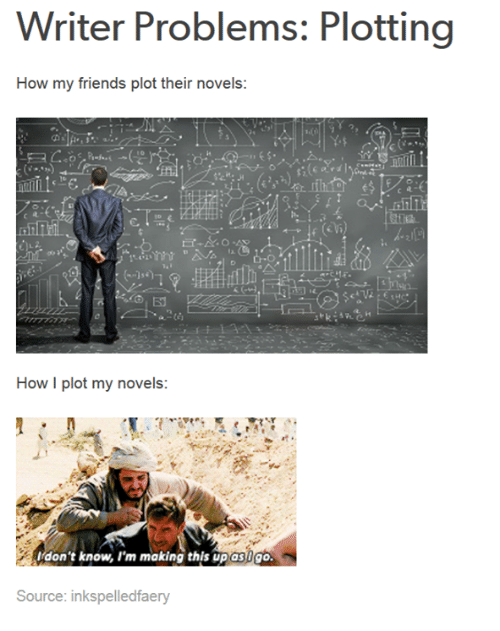
2. You should write your first draft in order
Myth: Most writers work linearly and you’re weird if you don’t.
Busted: This just isn’t true. Plenty of writers work out of order, and the romanticised, idealised fantasy of the author who sits down at a keyboard and pours out a novel from end to end is just that – a fantasy.
Who actually says linear is better?
Stories have structure which hinge on certain key scenes or story beats (there’s lots of information out there on this). Sometimes you might know where the story is going, but not how it gets there, and drafting those key anchor point scenes can help.
And what if you get stuck? Why suffer with writers block trying to force yourself to write a scene you don’t quite understand yet when you can skip over and come back to it later? Forcing yourself to write in order, if it’s not your natural process, can completely derail a project.
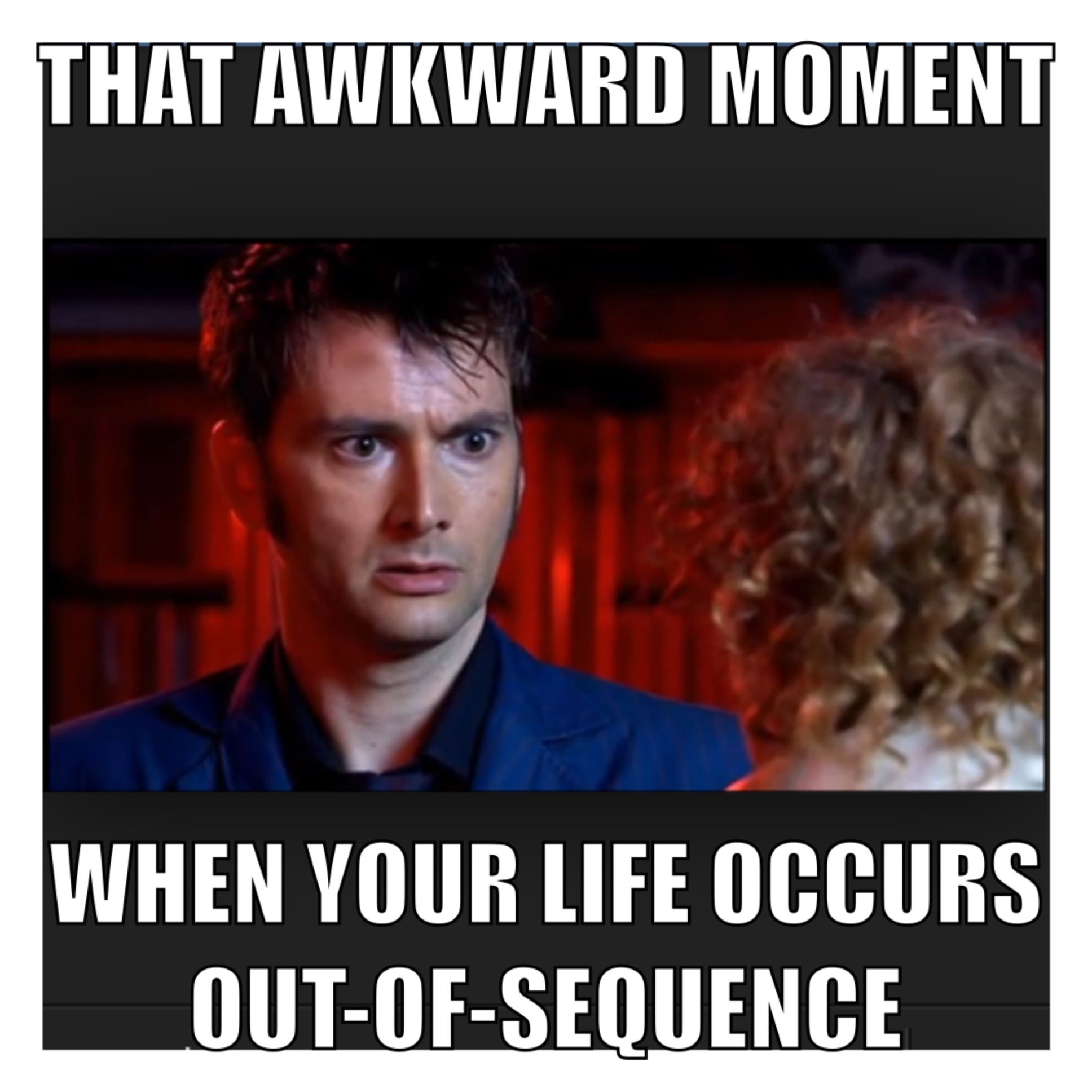
3. You shouldn’t edit until you have finished your first draft
Myth: Editing as you go along is just wasted time, slowing you down.
Partially busted: Don’t get confused between structural and sentence level editing. If I didn’t pause to re-structure and re-write my stories several times in the developmental stages I’d never finish anything, but I partially agree that agonising over the sentences and words as you write them will slow you down.
Forcing yourself to keep writing when you know an earlier part of the story isn’t right, or has gone off on a tangent you don’t want to follow, is counter productive. It could taint everything you write going forward and then you’ll have more work to do in the long run. How you get to that first complete draft is entirely up to you – find a method which works FOR YOU.
If you PLOT, you might be able to write a complete first draft from your outline without having to change it, but I honestly don’t think many people work that way at all.
If you PANTZ, this sounds virtually impossible.
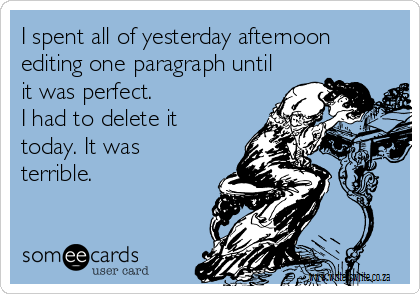
4. Good writers always overwrite their first drafts and then edit down
Myth: Editing should only ever be a process of removing flabby prose and tightening up.
Busted: Simply not true, this stems from more of those fictional ideals of what a writer is. It only seems like this is the case because more editing advice focuses on cutting down. Expanding as an editing process gets very little attention but it’s actually very common and is absolutely a tool you should use if you need it.
I’m a good example of someone who is very sparse with my description, especially on the initial draft. I need to focus on the action, on blocking out the scene, to begin with, and when I revise I can add more detail.
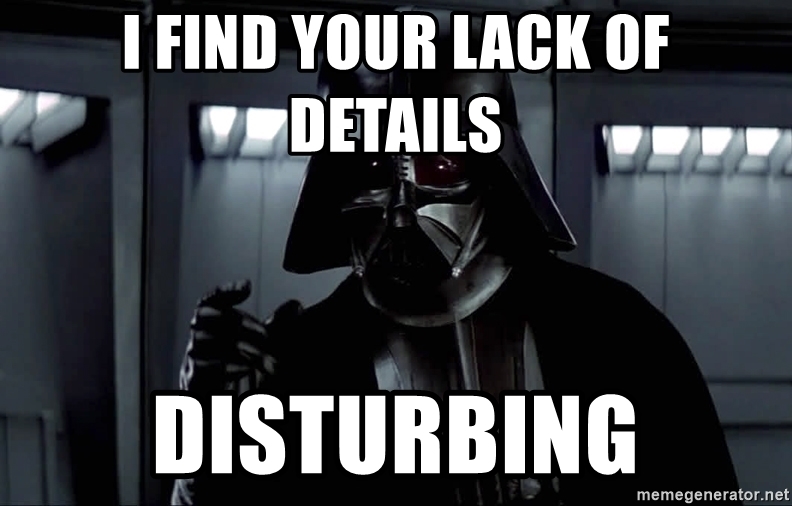
5. Other people’s processes are better than yours
Myth: If you try following someone else’s method and it doesn’t work for you, there must be something wrong with you.
Busted: Other writers may have more experience than you, but they don’t have any experience of being you. Their process is what works for them. If it doesn’t work for you, it doesn’t mean you’re no good, it means you’re not them.
The important thing is to try different things and reflect on what worked well and what didn’t. Compare your experience of different processes and work out YOUR PROCESS.
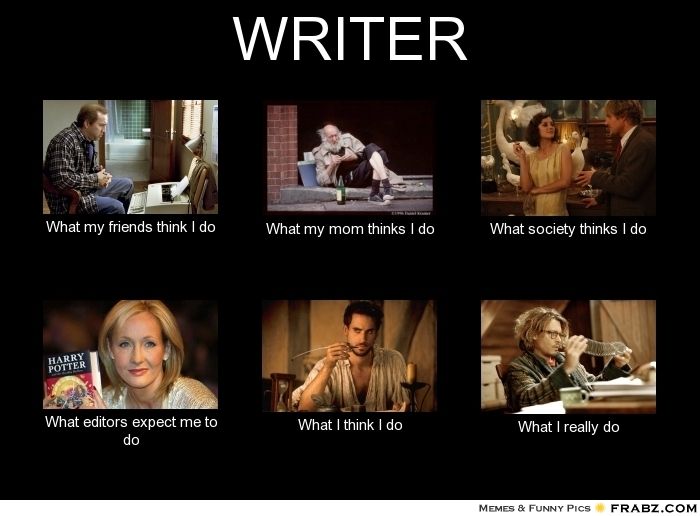
I hope this blog has left you feeling more confident about your process and less like you’re the odd one out some how.
If you enjoyed reading this, why not leave a comment. Tell me about your writing process and how you developed it.
What a great post, Chrissey! You have effectively punctured holes in some of the biggest myths.
Great tips! Number 3 especially I think is a good perspective on not editing while you write and knowing the difference between structural and sentence clean ups.